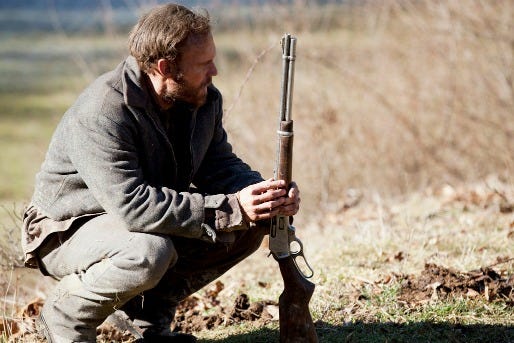Child of God
The writing of Cormac McCarthy is raw, uncompromising, filthy with violence and perversion. He never uses punctuation besides periods, not even to dilettante dialogue. His characters speak in quasi-Biblical language, and his settings are always archetypal. The south, the border, rural Mexicon and my personal favorite, "who-knows-when- Appalachia." Places of filth, squalor and sadness, of conservative communities where aberration is especially horrifying by comparison. Places and times where violence is still a language fluently spoken.
When adapted with the right touch, McCarthy's novels have made for unparalleled, uncompromising films about the relationship between man and his violence. 2007's "No Country for Old Men" and 2009's "The Road" were landmark examples of McCarthy's style wrought on the silver screen. 2013's "The Counselor," written by McCarthy himself, received mixed response; I, personally, thought it wasn't done justice by direction or casting and never possessed the depth and disturbance of McCarthy's other forays onto the silver screen. "All the Pretty Horses" was based on McCarthy's most romantic novel, but also failed to do it justice.

That brings us to "Child of God," notably adapted by actor / writer / director / producer / superhero / super-villain / student / personality James Franco. Franco does an admirable job at capturing McCarthy's writing. He understands that Lester Ballard's dark, monstrous story is one in which redemption or reparation have no part. Much like the novel on which it's based, "Child of God" is a hard film to watch, a difficult story upon which to forge any sort of emotional attachment and an even more difficult one of which to let go. It's a film with little appeal to anyone who doesn't already love McCarthy's work. That's OK because "Child of God" is clearly produced by a man who loves the novel and who set out to express that love. Despite his persona, Franco manages to make a movie devoid of his personality. What results is a great adaptation of a strange novel, a movie seeping with dedication from every shot, every line of dialogue and every artistic choice.
Lester Ballard (Scott Haze) is a violent man. He starts the movie evicted from his dead father's lands, set out loose around the Appalachian hills. He has no control over his temper and exhibits signs of extreme anti-social behavior. He becomes a squatter. The only people who interact with him are the police, who routinely suspect him of various crimes. He's not a person you'd want to interact with, but it's to Haze's credit the movie is even watchable at all. As the film progresses, Ballard becomes increasingly isolated from society, eventually resorting to murder, arson and even necrophilia. His deviancy is graphic, and the film's second and third acts are not for the faint of heart.
While the movie has beautiful scenery and music, and is competently directed and filled to the brim with other good actors (such as Tim Blake Nelson and Jim Parrack), none of it would have meant a thing if Franco hadn't created a film that ultimately leaves the central question, the opening line, up in the air. "Lester Ballard is a child of God, much like yourself..." Like McCarthy's novel, "Child of God" leaves the question hanging, contextualizing the society in which Ballard lives — one filled with klansmen and lynchings and state-ordained bigotry — with his own devious acts. It's deeply cynical but highly compelling.
For devotees of McCarthy's novel and his other work, "Child of God" is well worth watching and a fine, fine example of Franco's capabilities as a director.
